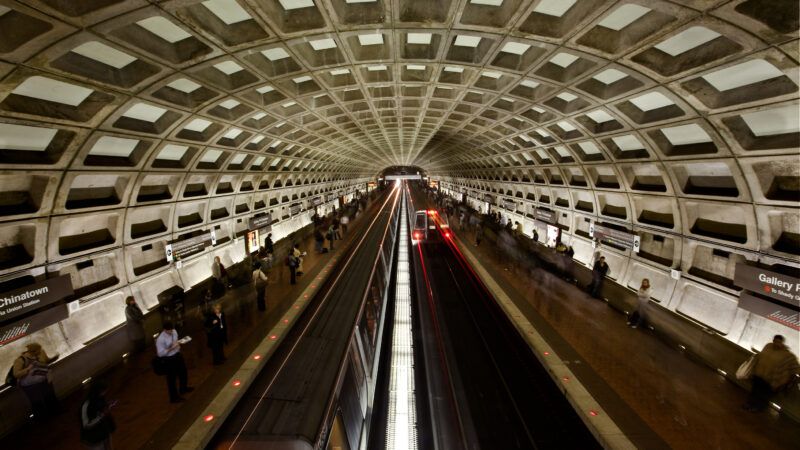After 12 Years of False Starts, D.C. Metro Once Again Plots Return of Automated Trains
WMATA suspended automated train operations after the deadly 2009 Fort Totten crash. Perennial efforts to bring them back over the past decade have repeatedly fallen through.

Self-driving cars are perennially just a few years away. The same seems to be true for the return of automated trains in Washington, D.C.
After over a decade of false starts, the Washington Metropolitan Area Transit Authority (WMATA) has a new timeline for phasing in the return of safer, smoother, automatic train operations, WJLA first reported.
Come Thursday, the WMATA Board of Directors' Safety and Operations Committee will consider a new timeline for testing computer-driven trains on the system's Red Line beginning September 2023. The hope is to return to automatically controlled trains on all lines by March 2024.
When it started operations in 1976, D.C.'s then-cutting-edge Metro rail system made use of automatic train control to drive its trains.
That stopped in 2009, after a deadly train collision near the Fort Totten station in the northeast part of the district. The post-accident investigation revealed that a malfunctioning track circuit didn't report the presence of an idling train at the platform to an incoming train, which then didn't stop. The resulting crash killed nine people.
The same track circuit issue had caused a near-collision a few years prior. WMATA had developed a maintenance procedure to fix it, but staff wasn't told about it.
In the aftermath of the disaster, Metro spent $106 million replacing 1,700 track circuits, but the revival of automated train operations never followed.
A brief return of computer-controlled trains was piloted in 2015. That effort was abruptly shelved after a deadly track fire that same year revealed a bunch of other higher-priority safety and maintenance issues WMATA needed to work on. Ongoing maintenance problems led the agency to scrap any plans for returning to automated trains in 2017. A briefly revived 2018 effort to bring them back by the following year also fell through.
But WMATA staff say Metro's infrastructure is at last at a place where it could start the process of bringing back automated trains. They also say that Metro has wrung every possible safety improvement out of manual operations.
Returning to automated operations would provide a lot of benefits. Human train operators would have no opportunities to blow through stop signals or travel above recommended speed limits.
Computer-controlled trains would mean an end to the jerky start-stop motion as trains pull into the platform that all WMATA riders are familiar with. Trains wouldn't need to pause for "schedule adjustments" either, speeding up operations. The opening and closing of doors could also be automated, which would speed up boardings at stations.
Automated trains would also lessen the overall system's dependence on Metro's Rail Operations Control Center, which is frequently the subject of scathing audits for failing to follow safety procedures and having a toxic workplace environment.
This would all be a nice change of pace for long-suffering Metro riders. There's always reason to suspect WMATA won't be able to pull it off.
An August 2021 safety audit found that WMATA staff working on the return of automated trains weren't following safety protocols and weren't communicating effectively across departments. Another 2022 audit found many stations' train control rooms—which house equipment needed for automated train operations—weren't being properly cleaned.
Those reports were produced by the Washington Metrorail Safety Commission, WMATA's interdependent safety regulator, whose approval is needed for automated trains to return.
As the debacle over Metro's 7000-series trains shows, there's no ruling out the possibility that some other disaster will occur within a few months that requires WMATA to put the return of automated trains on ice yet again.
Only time will tell.

Show Comments (21)